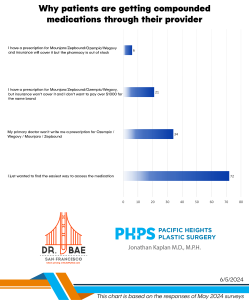So what do you know about Bitcoin? Never heard of it? This may or may not be the next technological revolution or the next supremely public disappointment. Bitcoin (code: BTC) is an example of a disruptive innovation – a technology that could potentially replace an existing technology. And the technology I’m referring to is nothing more than….money. That’s right, Bitcoin may one day replace your current concept of money; cash, check or charge.

This is a really difficult idea to grasp, or at least I thought so. But I’m going to explain it in a way that I wished someone would have explained it to me. My understanding is through reading and rereading many sources on the internet, magazines, newspapers and other online media here, here and here. So hold on to your seats, here we go. Bitcoin is electronic money. Sounds simple enough but it quickly gets complicated from there. Consider our current system: when you purchase something, you give the merchant money or currency in the form of cash, less commonly a check or payment with a credit card. The dollars are then exchanged in person in the form of cash or electronically in the case of credit cards. Regardless of how it’s done, there was an exchange of money that is acceptable to both parties. So if you consider a transaction in these most basic of terms, then a transaction with any form of money – cash, credit card (essentially paper or plastic), marshmallows or bitcoins – is also currency as long as it’s acceptable by all parties involved.
Therefore, Bitcoin (BTC) is considered an acceptable form of currency as long as both parties involved in a transaction accept it. If you understand the concept by now, then we can delve into the background. Bitcoin was developed by Satoshi Nakamoto – that’s not a real person; it’s a pseudonym for a person or group of people that published their idea on the internet in 2008. Bitcoin transactions happen between two Bitcoin addresses, where each address is controlled by a different person. Transactions are managed and agreed upon by a network of thousands of computers running Bitcoin software. Each Bitcoin address is made up of 27-34 characters consisting of numbers or letters but always starting with a 1 or a 3 (example: 175tWpb8K1S7NmH4Zx6rewF9WQrcZv245W). When you purchase a good or service with a bitcoin, it may require a whole bitcoin (1 BTC) or a fraction of a bitcoin and these fractions go out to 8 decimal places (as opposed to 2 decimal places with typical currency). The total pool of bitcoins available will eventually be 21 million. But many bitcoins won’t be available until the year 2140 because computer programs slowly make, or “mine” bitcoins, like gold.
So maybe I’ve lost you by now but there are real reasons this may be an important thing to understand. First off, it’s gained some legitimacy as a currency. One reason it has enlisted believers (not to be confused with Beliebers) is that every transaction, and I mean every transaction, is saved on a public log or ledger of transactions. Consider cash. Once you hand over your cash, there’s no definitive way to track or show that you have paid for a good or service. With Bitcoin, you have a verifiable electronic receipt that is indisputable on the public transaction log mentioned above. Users of Bitcoin make their transactions in relatively anonymous fashion on Bitcoin exchanges, which is why it has been used for less than legal transactions, much like cash. More and more merchants are using Bitcoin for their transactions. The purchase can’t go through unless funds are there so you’ll never have an issue with insufficient funds. And most importantly, processing fees are much less than credit card fees.
Now the downside. While there are thousands of merchants using Bitcoin, it’s not universally accepted. Also, its value fluctuates more than you would want your currency to fluctuate. Granted that, even now, U.S. currency, Euros, etc. fluctuate with the market, but Bitcoin, still in its infancy, fluctuates greatly. In April, 1 bitcoin (1 BTC) was worth $266. When I started this blog post earlier this evening, 1 BTC was equivalent to $75.54, by the time I’m finishing, it’s $76.53. For this reason, when many merchants accept a transaction in bitcoins, they quickly cash out in dollars so that they don’t lose value on their sale. Obviously this contributes to the exchange rate volatility. Once more merchants sign up to accept bitcoins and leave their money in the pool, the value of 1 BTC will hopefully stabilize. For a succinct summary on Bitcoin, check out the video below.
There are so many other aspects of Bitcoin but I think this is enough background to get to my point. Now that I’m in tech-savvy San Francisco, there is enough buzz around town regarding bitcoins, that I started thinking about accepting them for my cosmetic surgery practice! I’ve been reading about Bitcoin for several months now but the internet discussion has reached a tipping point in my consciousness to push me to consider taking this as a form of payment for out-of-pocket cosmetic procedures. Just like I accept CareCredit, cash, checks and credit cards, bitcoins may be next on the list.
Benefits of accepting bitcoins is to provide your patients with additional payment options. Although, in the center of the tech world, San Francisco, this may only account for 1-5% of patients. The added benefit of reduced processing fees is financially sound but that is balanced out by the volatility of the value of a bitcoin. Sure you can cash out into dollars as soon as you receive payment but I imagine this repeated process becomes tedious. So I guess I’ll leave it up to my clientele. If a prospective patient has a hole burning in their electronic wallet, I’ll probably go along for the ride.
I’m amazed that back in the day, running a plastic surgery office meant that one had only to consider what type of fax machine to purchase, what color drapes for the windows or what answering service to use. Now we’ve progressed to multiple brands of botulinum toxin, shaped and round silicone implants, marketing/SEO, Google Places and electronic currency. Now and in the future, it will take an extremely accomplished board-certified plastic surgeon to balance patient care with business acumen.
Do you accept bitcoins in your practice or know a doctor that does?
Click here for the original blog post written by Dr. Jonathan Kaplan for BuildMyBod.




